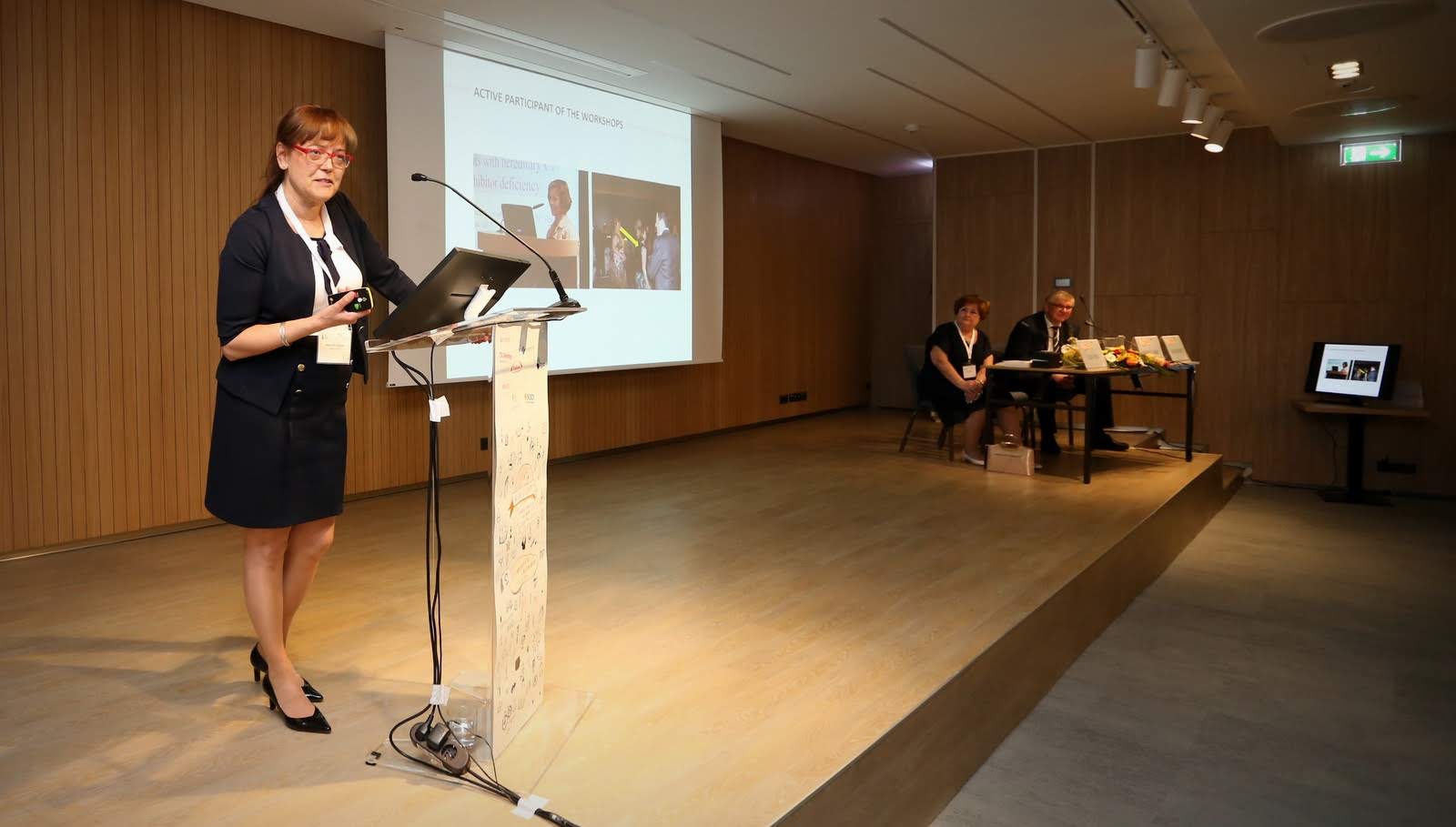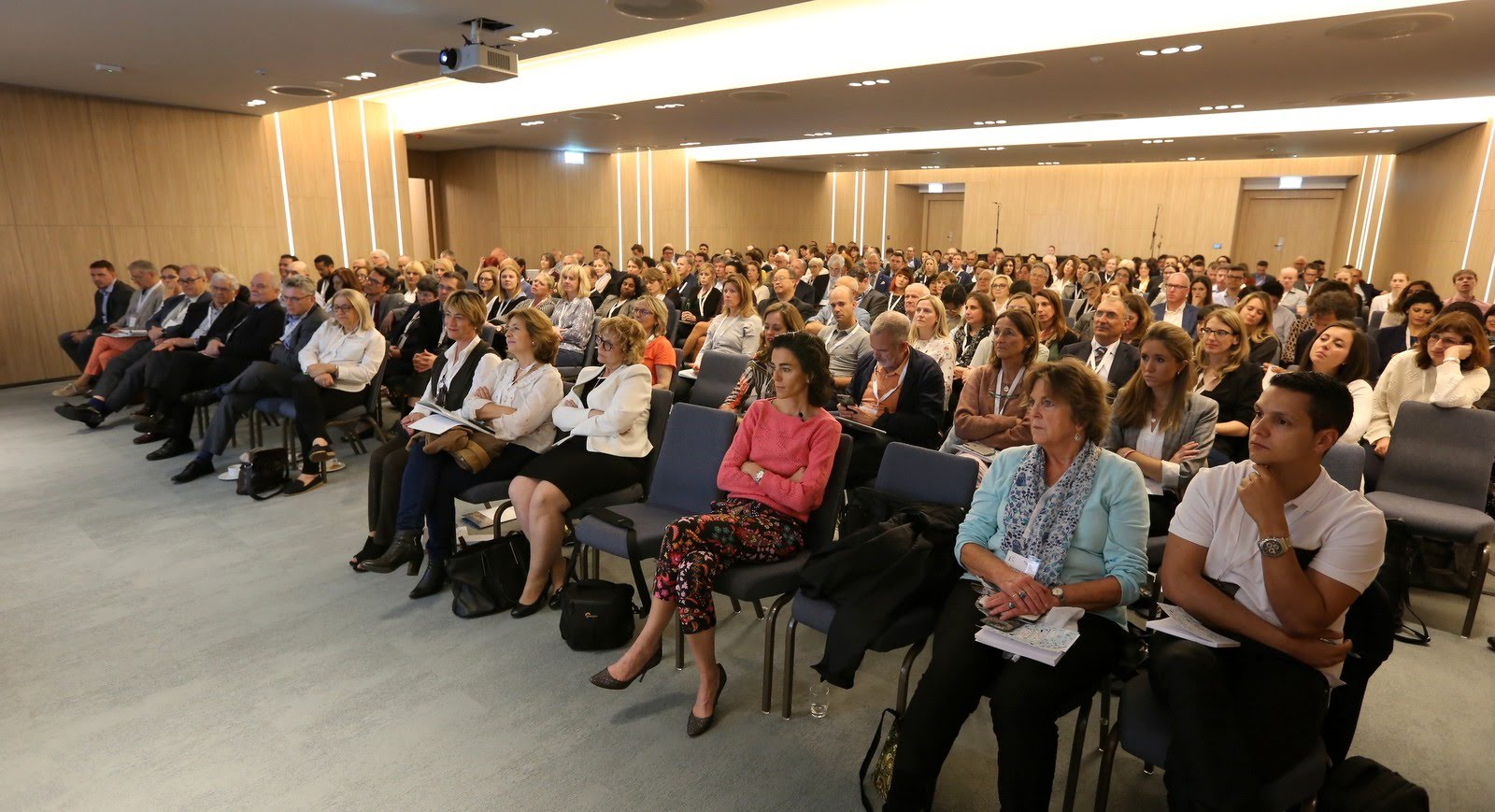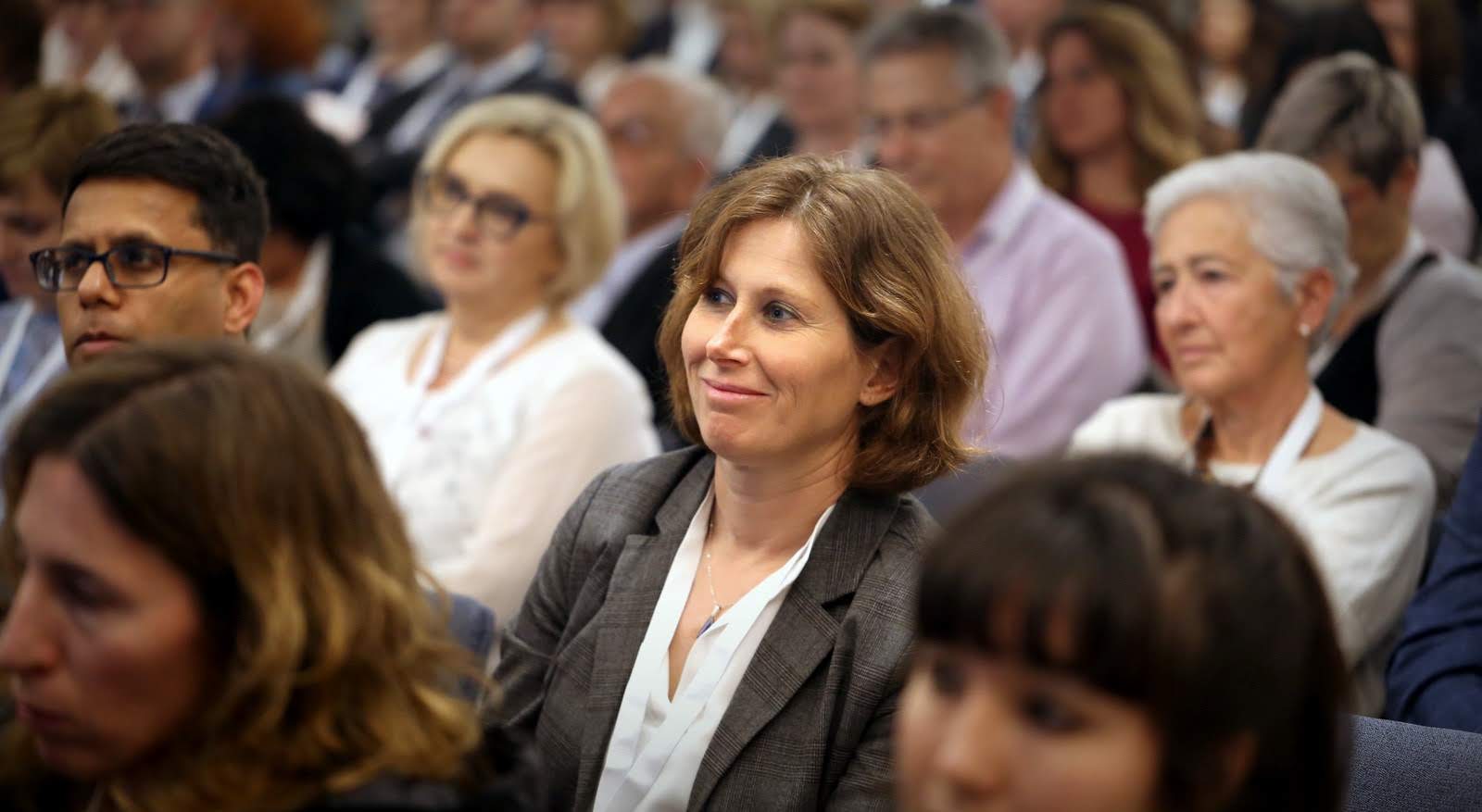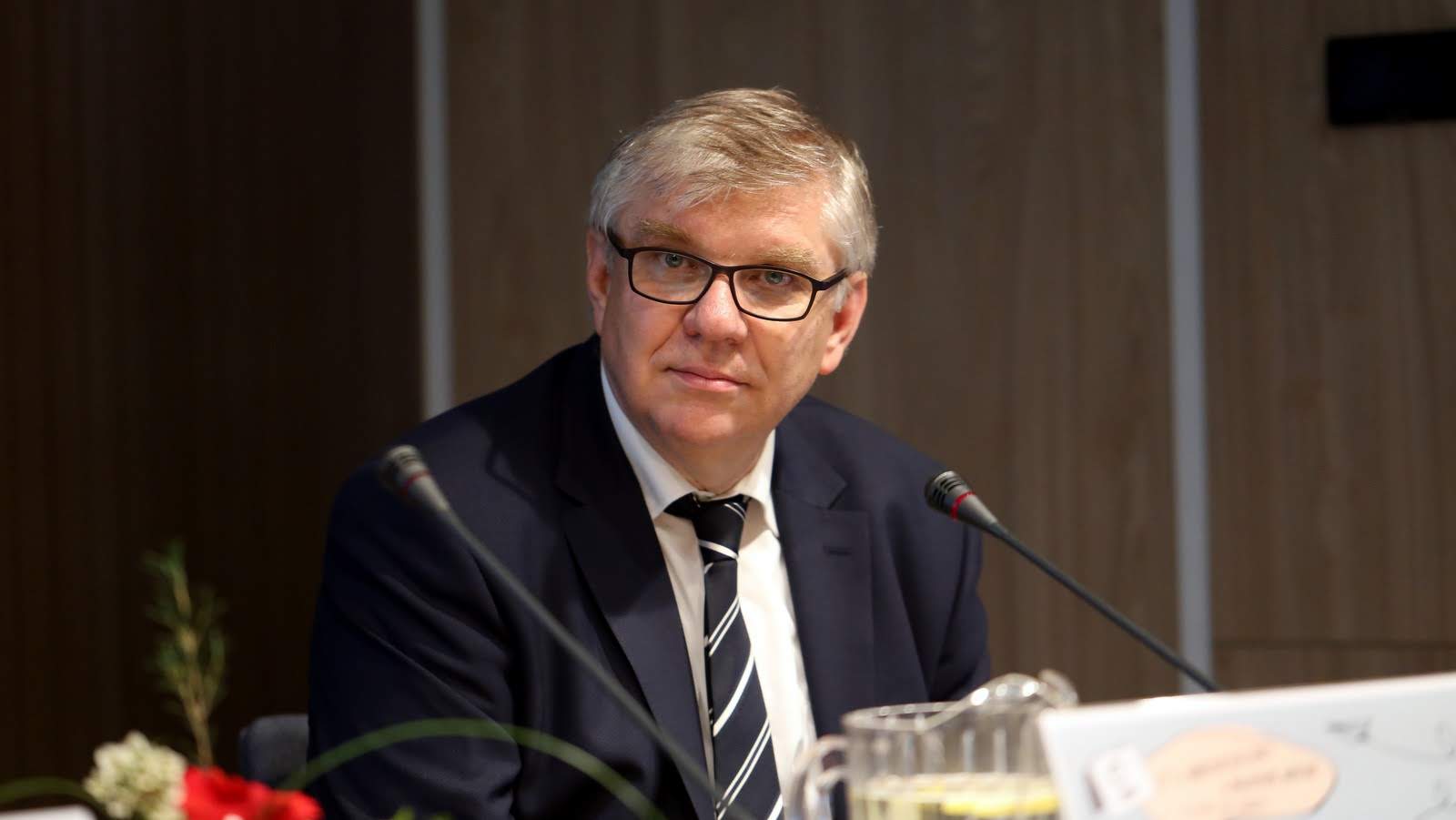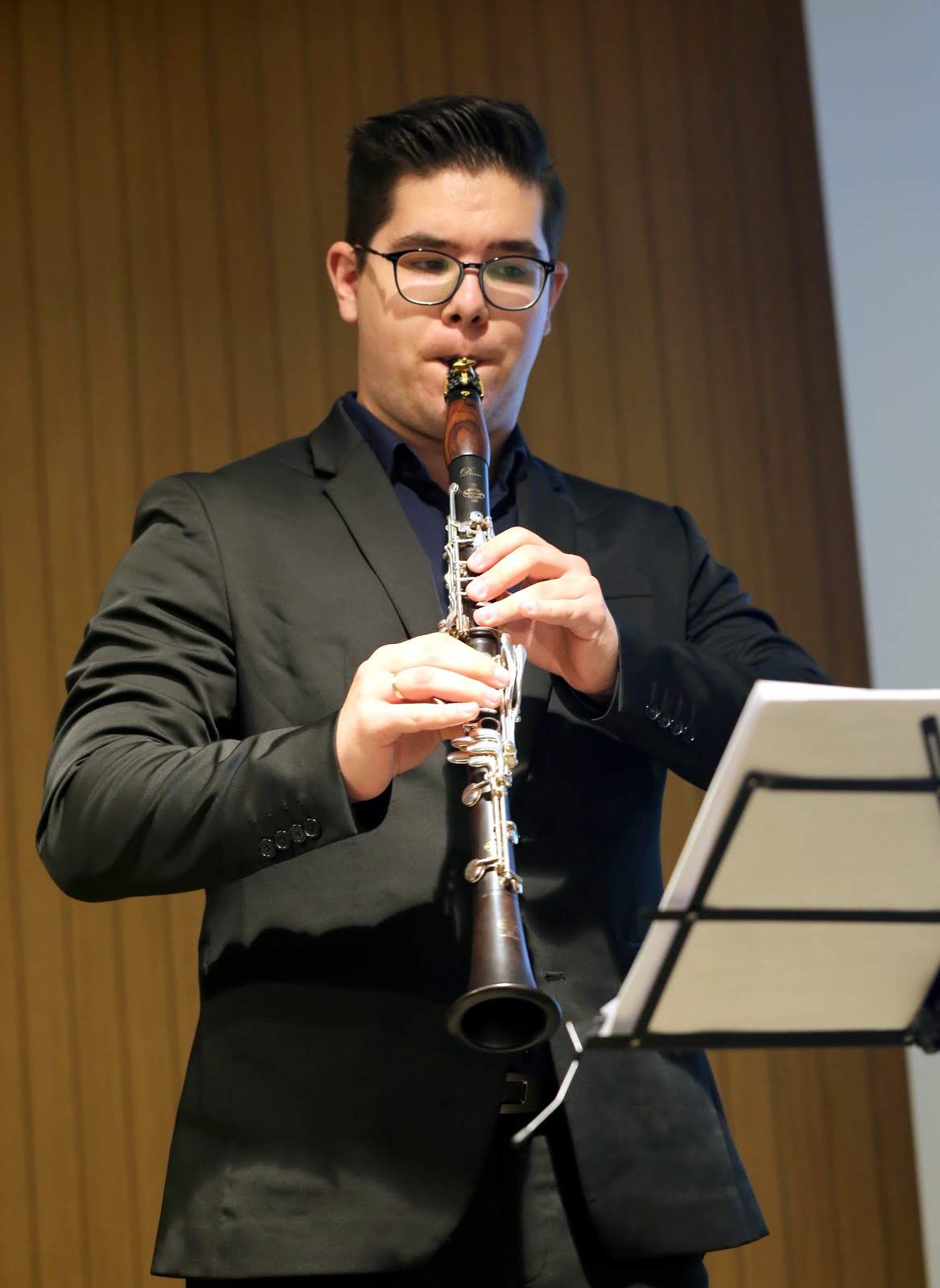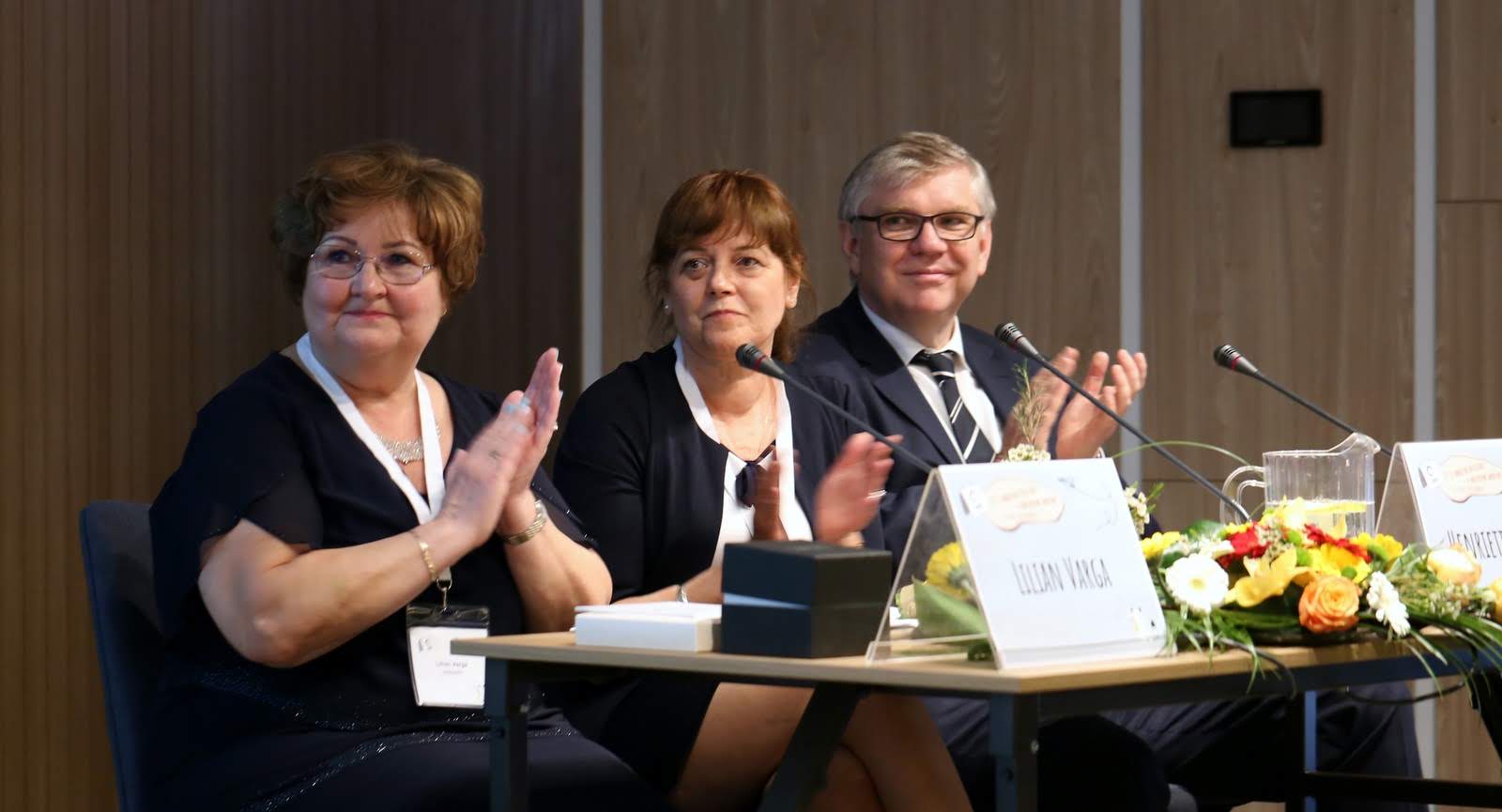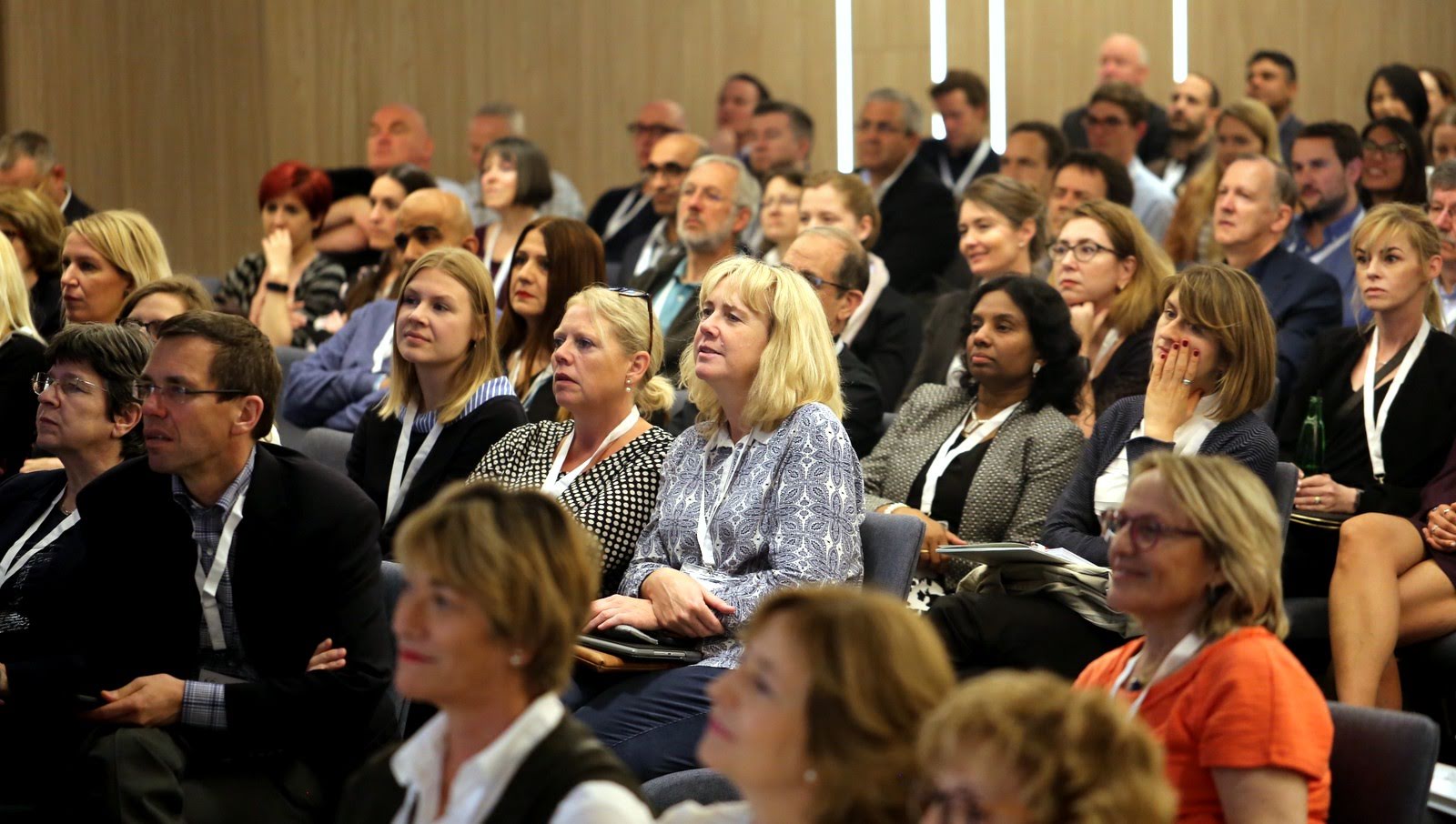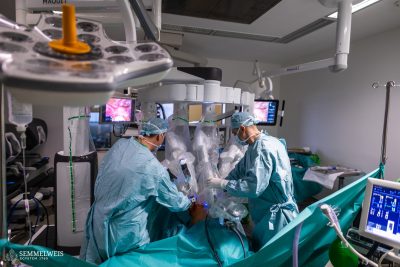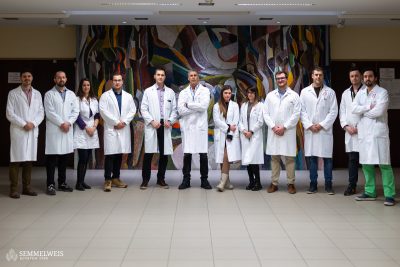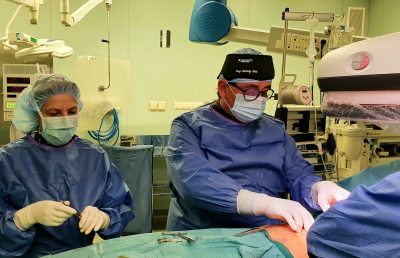An international scientific conference on hereditary angioedemas (HAE) was held for the 11th time in Budapest, with the main organizers being Dr. Henriette Farkas and Dr. Lilian Varga, two professors of the 3rd Department of Internal Medicine of Semmelweis University. The meeting, which was opened with a welcome address by Dr. László Hunyady, the dean of the Faculty of Medicine, included over 350 participants from 42 countries.
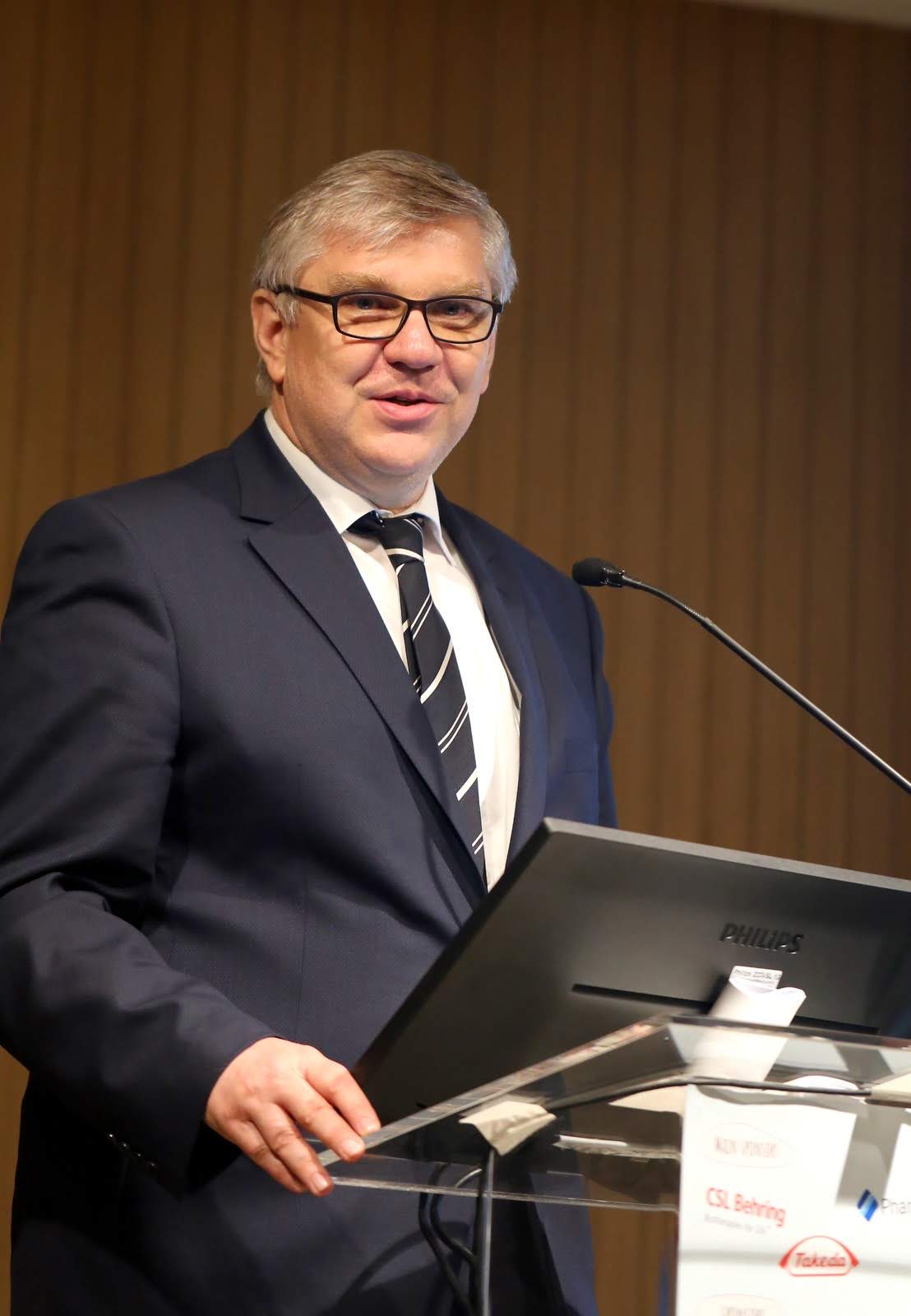 “I am very happy and proud that this meeting has been ongoing for 20 years now, as it has made important contributions to the field of immunology and complement research and is also the kind of meeting that enhances the reputation of our school,” said Dr. László Hunyady is his greeting remarks opening the event. He thanked the main organizers, Dr. Henriette Farkas and Dr. Lilian Varga, for their dedication and commitment to the cause, noting that the fields of C1-inhibitor deficiency and angioedemas are very complex ones. “It involves not just research and clinical work, but I am also really impressed with how much they have invested in treating the patients as human beings, organizing events and keeping track of all HAE patients in Hungary,” said the dean. He also noted that Semmelweis University will turn 250 years old this year, and he hopes to see many of the participants at the events during the celebratory year as well.
“I am very happy and proud that this meeting has been ongoing for 20 years now, as it has made important contributions to the field of immunology and complement research and is also the kind of meeting that enhances the reputation of our school,” said Dr. László Hunyady is his greeting remarks opening the event. He thanked the main organizers, Dr. Henriette Farkas and Dr. Lilian Varga, for their dedication and commitment to the cause, noting that the fields of C1-inhibitor deficiency and angioedemas are very complex ones. “It involves not just research and clinical work, but I am also really impressed with how much they have invested in treating the patients as human beings, organizing events and keeping track of all HAE patients in Hungary,” said the dean. He also noted that Semmelweis University will turn 250 years old this year, and he hopes to see many of the participants at the events during the celebratory year as well.
HAE is a condition belonging to the group of so-called orphan diseases that can result in life-threatening conditions. The C1-inhibitor in the name of the workshop is a protease inhibitor that is missing from the blood of HAE patients, leading to increased amounts of bradykinin which promotes swelling and the formation of edemas. This can occur and trigger attacks in the face, the extremities, the gastrointestinal tract or larynx, which can even lead to death without quick treatment. HAE is a rare, hereditary disease whose frequency is about one in 50,000, meaning there are around 200 to 1,000 patients in Hungary. The first such workshop was held 20 years ago in Hungary, in 1999, with 40 participants.
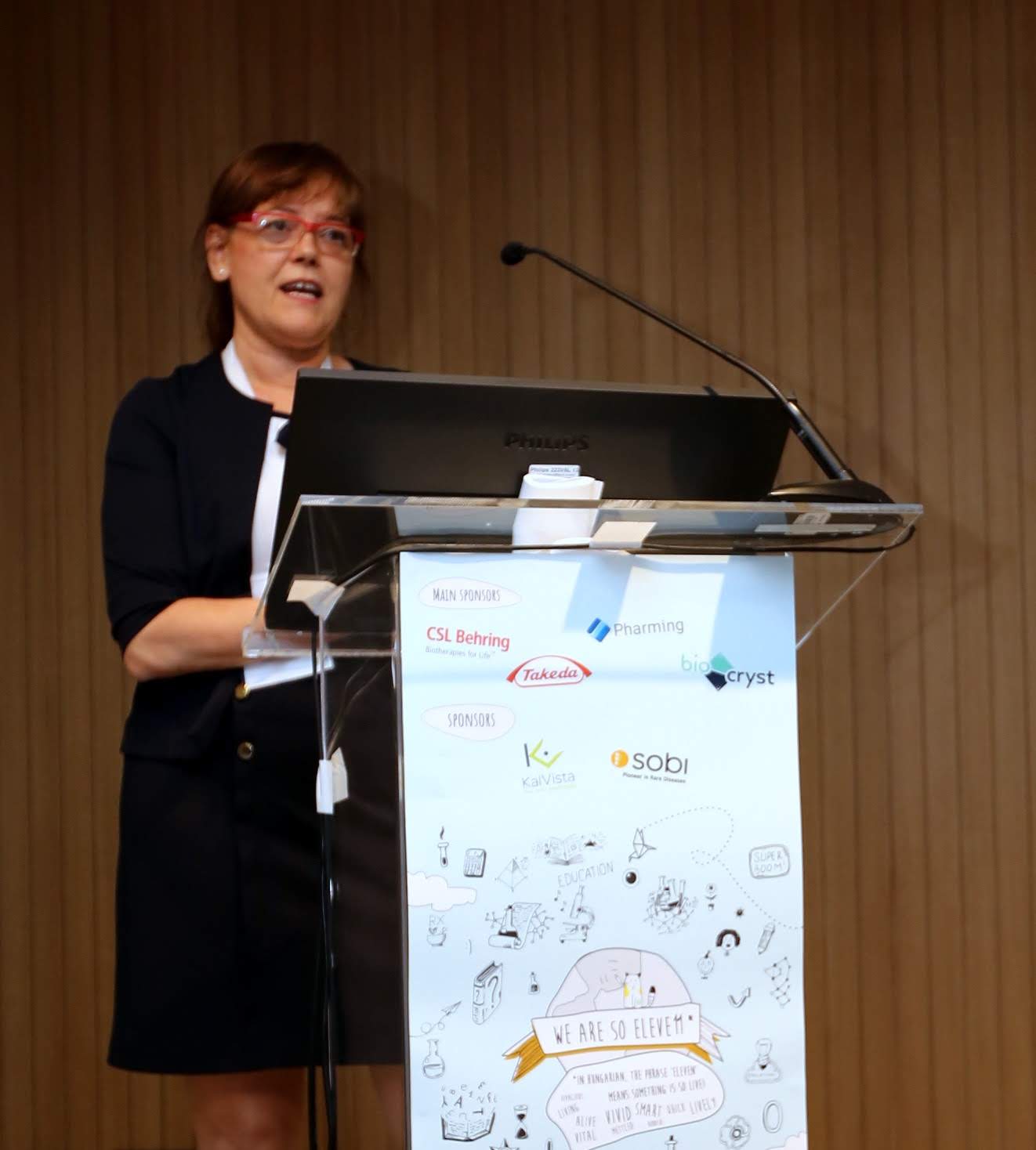 In her welcome remarks starting off the conference, Dr. Henriette Farkas said that the current, 11th workshop registered a total of 351 participants from 42 countries. Presentations were delivered by 87 speakers in nine sessions, with three invited international guest lecturers, as well as various roundtable discussions held. Based on the submitted 82 abstracts, the program included 36 oral and 46 poster presentations. All the abstracts will be published in the Allergy, Asthma & Clinical Immunology periodical. Dr. Farkas noted that this year, the word “angioedema” has been added to the four-day event’s title, as it better reflects the agenda, which includes topics on other bradykinin-mediated hereditary and acquired angioedemas, in addition to C1-inhibitor deficiency. Workshop attendees included researchers, medical professionals, drug development specialists, members of patients’ organizations and nurses from all over the world.
In her welcome remarks starting off the conference, Dr. Henriette Farkas said that the current, 11th workshop registered a total of 351 participants from 42 countries. Presentations were delivered by 87 speakers in nine sessions, with three invited international guest lecturers, as well as various roundtable discussions held. Based on the submitted 82 abstracts, the program included 36 oral and 46 poster presentations. All the abstracts will be published in the Allergy, Asthma & Clinical Immunology periodical. Dr. Farkas noted that this year, the word “angioedema” has been added to the four-day event’s title, as it better reflects the agenda, which includes topics on other bradykinin-mediated hereditary and acquired angioedemas, in addition to C1-inhibitor deficiency. Workshop attendees included researchers, medical professionals, drug development specialists, members of patients’ organizations and nurses from all over the world.
At the opening ceremony of the event, which was held in the Danubius Health Spa Resort on Budapest’s Margitsziget island, there was also a performance by noted Hungarian clarinetist Dániel Lugosi, followed by the presentation of the “For HAE Patients” Award. This year, it went to Teresa Caballero from the Department of Allergy, Hospital La Paz in Madrid, Spain, for her huge efforts made in the interest of HAE patients. At the conference, there were also grants awarded to four young researchers under the age of 35, with a prize of EUR 2,500 each. Three of the four awardees are students currently doing their research at the 3rd Department of Internal Medicine: PhD students Noémi Andrási and Zsuzsanna Németh, and Ágnes Holdonner, a fifth-year student at the Faculty of Medicine.
Tamás Deme
Photos: Tamás Thaler, www.2019.haenetworkshop.hu
